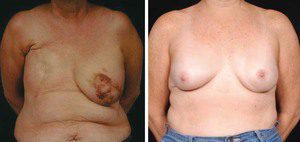There’s been much ado about breast cancer screening in recent years. The US Preventive Services Task Force recommends that routine mammography screenings start at age 50, rather than at age 40, but other groups vehemently argue that this practice would result in more women being diagnosed with advanced-stage breast cancer as opposed to earlier when the cancer is presumably in a more treatable form.
For these reasons, the American Cancer Society still recommends yearly mammograms starting at age 40 plus clinical breast exams about every 3 years for women in their 20s and 30s and every year for women 40 and above, along with breast self-exam (BSE) starting in their 20s.
Women who are at high risk for breast cancer based on certain factors should get an MRI and a mammogram every year, the group states. Those with dense breast tissue are urged to talk to their doctor about the need for additional screening.
The bottom line is likely that there is no one-size-fits-all answer when it comes to screening advice for breast cancer. “I think that women need to have all the options presented to them in a way that they can understand the pros and cons. At that point, the woman gets to decide the best choice for her,” says Susan M. Love, MD, president and medical director of the Susan Love, MD, Breast Cancer Foundation in Santa Barbara, Calif, a nonprofit organization dedicated to the eradication of breast cancer; a clinical professor of surgery at the David Geffen School of Medicine at UCLA; and the author of Dr Susan Love’s Breast Book and Dr Susan Love’s Menopause and Hormone Book.




